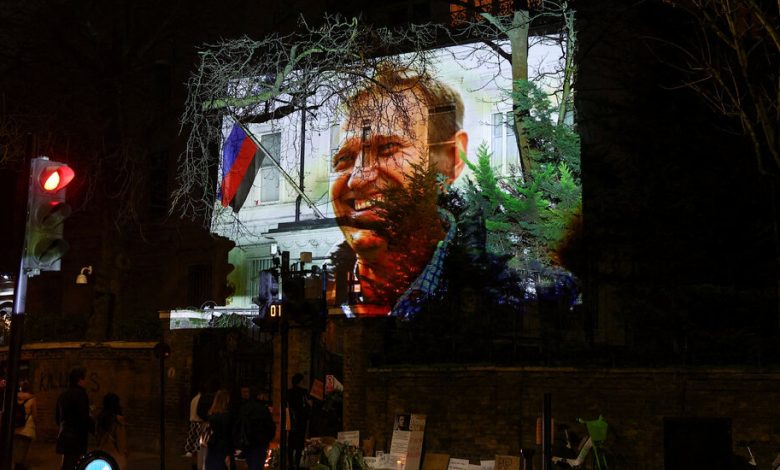Navalny’s Death Shocked the World, but Will It Galvanize Opposition to Putin?

In Munich, world leaders were left hushed and hollow-eyed, their annual security conference suddenly transformed into a wake. In London, demonstrators projected a giant image of Aleksei A. Navalny on to the facade of the Russian embassy. In Washington, an angry President Biden called a news conference to declare, “Make no mistake: Putin is responsible for Navalny’s death.”
Rarely has the death of a single man summoned such a cascade of grief, anger and demands for justice.
While many feared the worst for Mr. Navalny when he returned to Russia in early 2021 from Germany, where he had recovered from being poisoned, the news that he was gone still landed with a thunderclap. Governments, however cruel and repressive, often spare dissident figures, if only to avoid creating martyrs.
In life, Mr. Navalny was often compared to Nelson Mandela, the anti-apartheid leader who languished in prison for 27 years before emerging to lead a democratic South Africa. In death, Mr. Navalny now draws comparisons to the Rev. Dr. Martin Luther King Jr., the civil rights leader who fought for racial justice and whose assassination in 1968 was a catalytic event in America.
Whether Mr. Navalny’s death will reverberate through the ages like Dr. King’s is not yet clear, of course. Even the circumstances are still shrouded in mystery, with only a cryptic report from a remote Arctic penal colony that the 47-year-old “convict” had collapsed after a walk. His family hasn’t received his body, and his mother was told that he died of “sudden death syndrome,” without further explanation.
Much has changed since Mr. Navalny began his career as an opposition politician more than a decade ago, a charismatic figure who appealed to restless middle-class residents of Moscow and who harnessed social media to counter the corruption of President Vladimir V. Putin’s Russia.